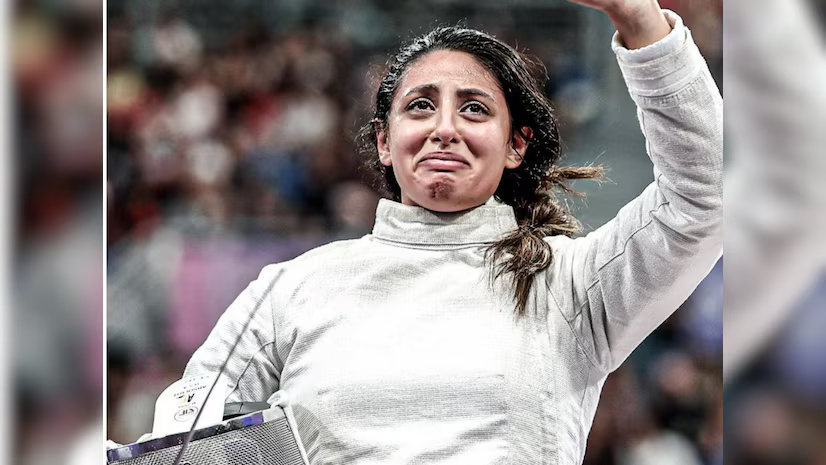Disha Gupta, Pune
On the third day of the Paris 2024 Olympics, Egyptian fencer Nada Hafez defied expectations by competing at seven months pregnant. While most women at this stage prioritize comfort, opting for supportive shoes and relaxed clothing. Hafez donned fencing gear and entered the Grand Palais to compete, carrying both her own aspirations and those of her unborn child.
Hafez, 26, in her third Olympics, won her initial match in women’s individual sabre competition, beating United States Elizabeth Tartakovsky by 15-13. Her Olympic journey was cut short when she was knocked out in the last round of 16, losing 15-7 to South Korea’s Jeon Hayoung. Post-elimination, Hafez disclosed she had competed while seven months pregnant.
Hafez proudly discussed her unique Olympic experience: “This third Olympics was different- three times Olympian but this time carrying a little Olympian one!” She acknowledged the difficulties of balancing pregnancy both physically and emotionally with competitive sports, describing it as challenging but rewarding. Hafez expressed gratitude for her husband Ibrahim Ihab’s and family’s support, which enabled her to compete at this stage.
The Paris 2024 Olympics Games mark a milestone for athlete mothers, with record participation of women with children in both Olympics and Paralympics than ever before. The Olympic village now includes a nursery, for the first time. Many countries are celebrating the achievements of their female athletes’ dual roles as competitors and mothers.
Helen Glover, top-ranked female rower and two-time Olympic gold medalist, discussed changing attitudes towards mothers in elite sports at the highest level. She pointed out the disparity in scrutiny between mothers and fathers in Team GB regarding their parental responsibilities. A mother of three, Glover has championed the balance of parenthood and high-level athletics since coming out of retirement to compete in Paris.
Glover told Radio Times: “Fatherhood in Team GB isn’t discussed as it doesn’t affect careers are longer, unlike for women. Men’s careers are expected to be longer. However, these Games are significant for the number of women competitors returning to compete after having children.”
In 2021, Glover made history as the first mother on Great Britain’s Olympic rowing team, reaching the final in Tokyo just 18 months after giving birth to twins. Paris 2024 continues this progress, with athletes like Hafez and Glover advancing discussions on motherhood in elite sports.
